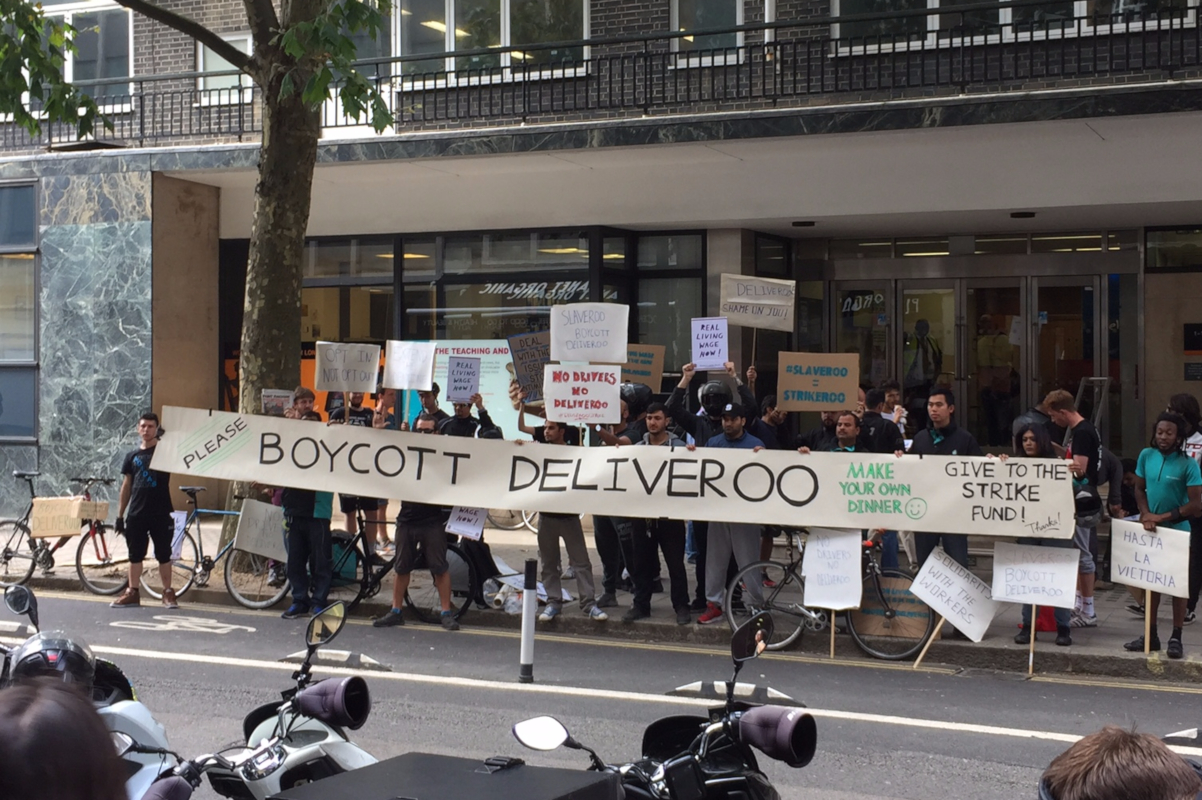Brexit or Not: Workers Have Their Own Battles to Fight

The Brexit pantomime threatens to fracture the traditional political set-up of the British ruling class. Meanwhile the whole issue is diverting attention from the dire situation experienced by the working class. Theresa May has announced that austerity is over but the massive spending cuts that have been implemented over the last decade are not going to be reversed.
It's a Bosses’ Crisis — but Workers Suffer
Working class people have seen reduced in-work benefits, cuts to unemployment and disability allowances, abolition or paring down of a whole range of local government services and amenities, including the cancellation of school and house building programmes. Inadequate funding has pushed areas of public health and education to the brink of collapse. Whether it’s called Universal Credit or Job Seekers’ Allowance, people without paid work have to find a way through a demeaning maze of bureaucratic hoops to get the measly ‘benefit’ they are entitled to. The massive rise in the use of food banks is set to increase, the shortage of “affordable housing” will remain and reports of hidden and not-so-hidden homelessness will continue.
On the jobs front, where the official statistics show that more people than ever are “in work”, far from a contented, prosperous working class looking forward to a bright future for themselves and their kids, we have a world of increasingly precarious, low-paid work; where the prospect of a decent pension is diminishing by the day; where nominal wages have barely reached the level they were a decade ago (though inflation has not gone away); where life without resorting to the credit card and/or loan sharks is unthinkable for many. If you want a reliable statistic, check out the United Nations facts and figures. According to the UN, 60% of people “in poverty” in Britain are from working families, including 2.8 million in a family with a full-time worker.
Everyone knows that the gap between the rich and everyone else is now a chasm. However the ONS (Office for National Statistics) added insult to injury when it announced in March that it has been miscalculating “the very highest incomes in the country”. In fact “top earners (sic) incomes are twice as high” as previously portrayed and, what do you know, “This means income inequality is higher than thought”. In fact, the ONS admits, “even using the current method, top incomes grew sharply in 2018 while incomes for the poorest fifth fell”. (Info from the Financial Times, 4.3.19)
Hardship is Worldwide — Class Resistance Must Be Global
Of course this is not just the condition of the working class in the UK. Throughout the whole of the so-called advanced states, the situation is essentially the same. In the not-so-advanced states, it’s even worse. China is now the world’s second “superpower”. There, 30 million or so people have to live on less than 90 U.S. cents per day. And for the hundreds of millions who live in the world’s least advanced countries, they invariably live in “extreme poverty”. Everyday life is a constant struggle to stay clothed, housed and fed. The local states prop up the capitalist system that generates this living hell. Many of our class sisters and brothers are forced to flee as refugees, risking their lives to seek any sort of hope.
The point is that this picture is not changing for the better. We are not living in the post-war boom period of the 1950s and 60s. For decades now global capitalism has been grappling with its inevitable crisis of falling profit rates in the ‘real economy’ and turning more and more to financial speculation. The 2007-8 banking crash was the inevitable consequence. But the ‘solution’ to the crash — dole out billions of pretend-dollars, pounds and euros to the banks — has only postponed the next crash and made the capitalist debt mountain even higher. It’s estimated that the total debt is about 12-14 the total value of everything that is produced worldwide in a year.
Put simply, capitalism has no future to offer the working class anywhere.
Across the globe there are growing signs that workers are overcoming fear and learning how to fight back on their own account. From the brave struggle of workers in Iran to the determined resistance of workers in the maquiladoras on the Mexico/US border, the working class is beginning to recognise the power it potentially possesses: the power to overthrow this system based on profits for a tiny few stolen from the unpaid labour of the working class. Sure, the anger that is welling up does not always point to a clear way forward: the gilets jaunes is a cross-class protest movement with multiple agendas; as yet the street protests in Algeria have no other agenda than get rid of the decrepit Bouteflika; and it would be naïve to pretend that all grassroots protest movements are good.
The bottom line is that unless and until the internationalist communists are well enough organised and strong enough to influence the political direction of what’s going on, the anger of the working class will be dissipated piece by piece. In the same vein, unless and until substantially more workers realise that they must organise and fight on their own account, then the message of the internationalists will remain a cry in the wilderness.
But there is no other road. Anyone who sees this bigger picture should not be taken in by the politics of the likes of Corbyn, McDonnell and their admirers. The left Labour agenda, as always, is a fictional national solution using the capitalist state and pretending there is a parliamentary road to ‘socialism’.
If our alternative makes sense to you, get in touch with the CWO and help us argue for a revolutionary perspective within the working class.
The above article is taken from the current edition (No. 46) of Aurora, bulletin of the Communist Workers’ Organisation.


